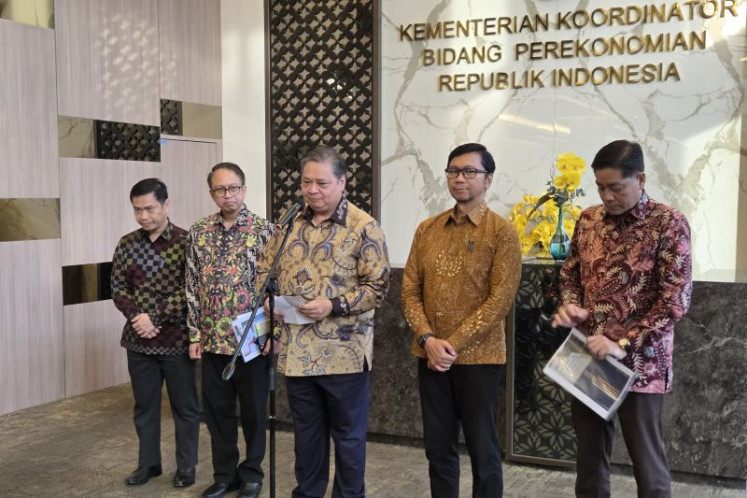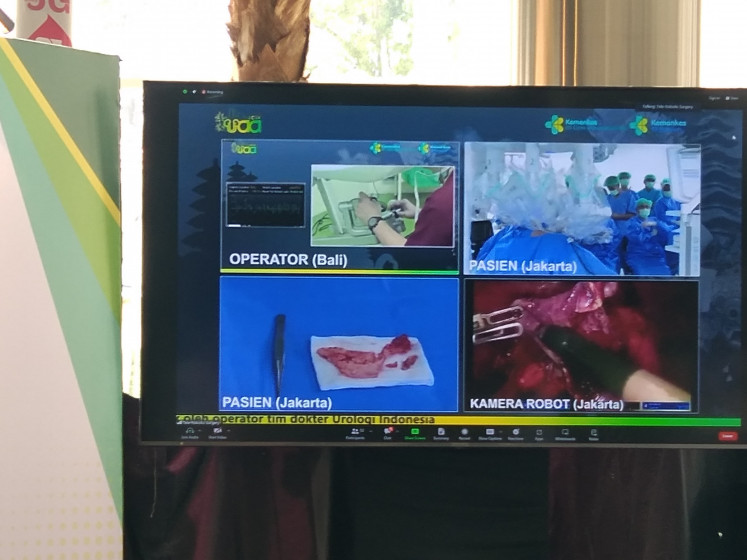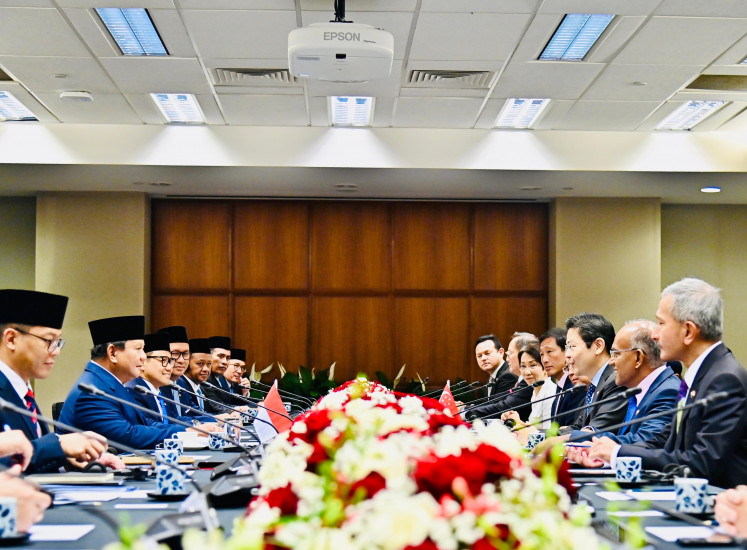Popular Reads
Top Results
Can't find what you're looking for?
View all search resultsPopular Reads
Top Results
Can't find what you're looking for?
View all search resultsEditorial: Marsinah's unfulfilled dream
Over the weekend 34 young workers finally regained their freedom, after being forced to work for two years at a factory in Tangerang, Banten
Change text size
Gift Premium Articles
to Anyone

O
ver the weekend 34 young workers finally regained their freedom, after being forced to work for two years at a factory in Tangerang, Banten. Police are still investigating the treatment of the men as it is alleged they were forced to work without pay, were crammed into a single bedroom and were subjected to torture.
This appears to be one isolated case that the police will hopefully resolve. Jakarta Police spokesman Sr. Comr. Rikwanto said investigators would probe allegations that military and police personnel were involved in the case. The perpetrators may be charged under the Criminal Code for the abuse.
A thorough investigation and trial to hold perpetrators accountable would be an achievement in this nation. Though it is just one case in one of the country's major industrial areas, resolving it would at least symbolize a gesture to end impunity, at least on the factory floor.
Today Indonesia remembers another unresolved case, hidden deep in the closet ' the death of activist Marsinah on May 8, 1993. This case, in Sidoardjo, East Java, is now 20 years old and, thus, the case has expired. Two managers from her watch factory were convicted but alleged perpetrators from the Sidoarjo military command never reached court.
Marsinah was among the workers who led a protest against the management and the military command for abusing workers, following their demands for better pay and work conditions.
Activists today are demanding an official Marsinah Day while others earlier suggested moving International Workers Day, in Indonesia, to May 8 to honor her struggle.
The protest was held at the height of the New Order's power, where close collaboration between the management and the local military were the rule. As a woman Marsinah suffered even more ' an autopsy revealed she was sexually assaulted and her inner organs were severely damaged. Subsequent leaders promised to reopen the case but with the passing of today this is no longer possible.
Sweeping cases like Marsinah under the carpet maintains the legacy of impunity and continued abuse against vulnerable citizens because no one gets punished.
The Tangerang case also opens our eyes to the unmentioned practice of slavery-like treatment within the safe borders of our country. To improve the condition of servants, for many years activists have pushed for the domestic workers law, unfortunately, so far, it has been unsuccessful.
An anti-slavery law is needed for Indonesian employers, who think nothing of having lowly paid maids at their beck and call.
Marsinah, at 24 years old, demanded the recognition of workers as humans. The least Indonesians owe to her is to ensure the end of slavery in the country.









